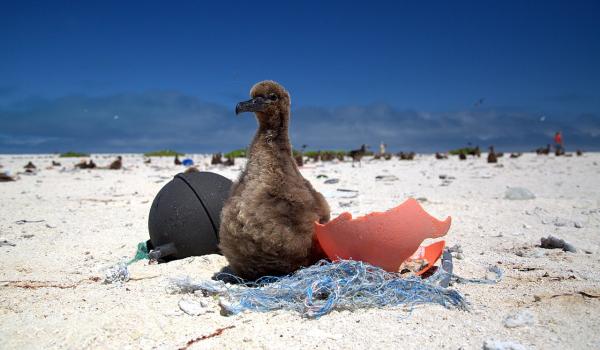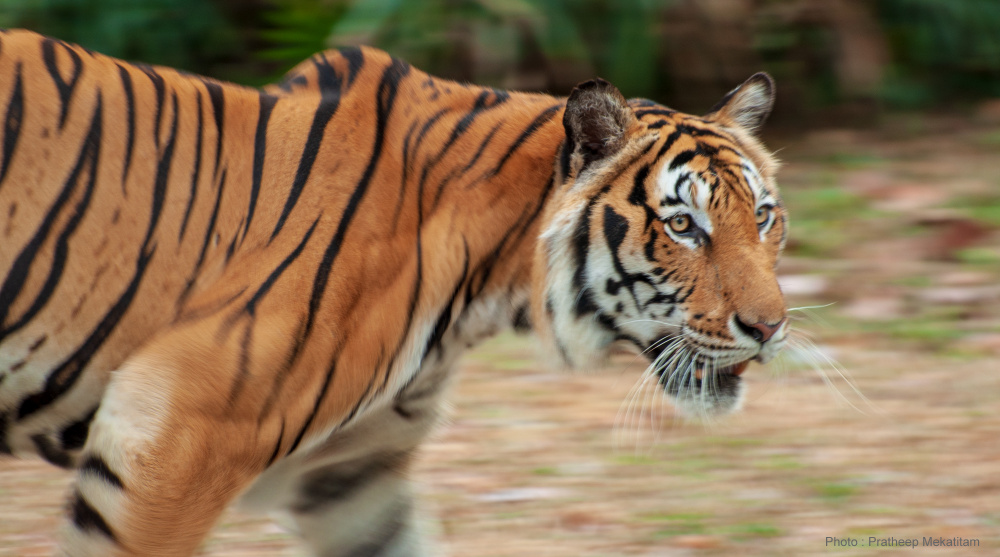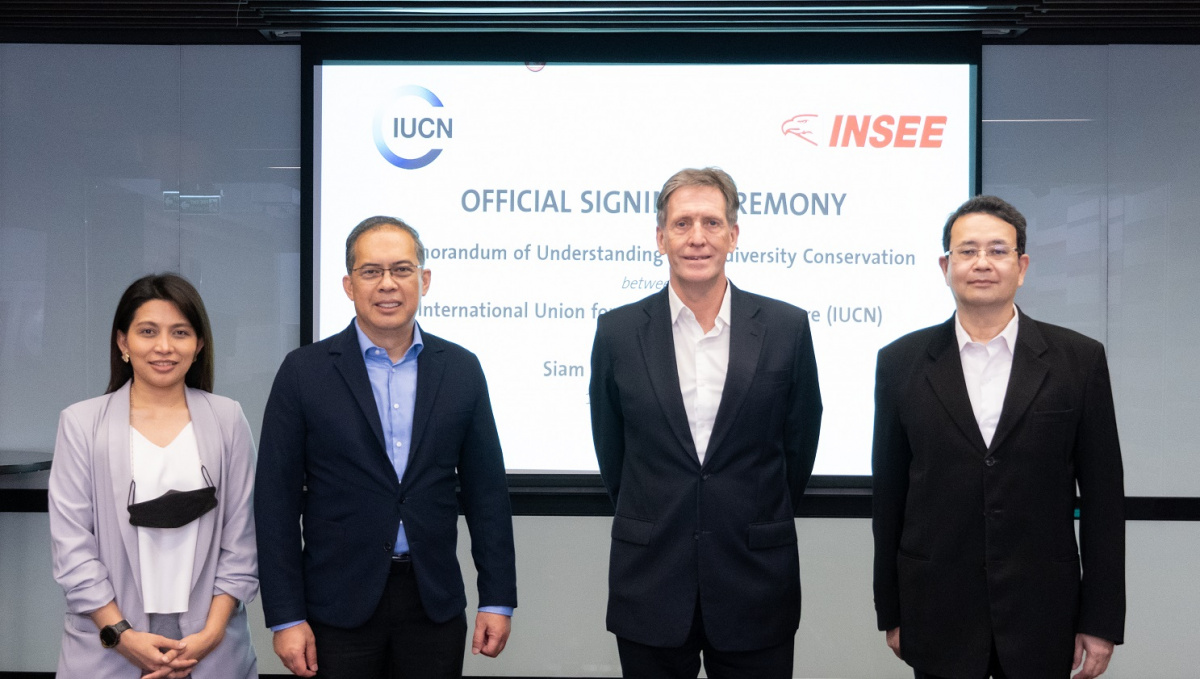IUCN Thailand and Phuket Marriott Resort & Spa, Merlin Beach Host Bamboo Shark Release with the Department of Marine and Coastal Resources
On 6 December 2018, IUCN organized the Bamboo Shark Release and Reef Cleanup at Phuket Marriott Resort & Spa, Merlin Beach. Over 100 people took part in releasing 35 brownbanded bamboo sharks (Chiloscyllium punctatum) at the resort’s house reef. The sharks were hatched and raised by the Department of Marine and Coastal Resources at the Phuket Marine Biological Center. Thirty students from Kajonkiet International School helped to release the sharks, alongside hotel guests. Local Phuket divers also lent their efforts in a reef clean-up with Sea Bees Diving that gathered 30 kilograms of marine debris.
The event began with a welcome speech from Mr. Trevor May, General Manager of Phuket Marriott Resort & Spa, Merlin Beach, which was followed by a presentation from Dr. Kongkiat Kittiwattanawong, Director of the Phuket Marine Biological Center, who discussed the importance of private-public sector collaboration, such as the partnership between IUCN and Marriott. Ms. Ratree Suksuwan, head of the Phuket Aquarium, then explained the process of raising the sharks at the aquarium’s hatchery, and the threats to bamboo sharks in Thailand. Following Ms. Suksuwan, Brendon Sing, Director of Shark Guardian, explained the importance of sharks to marine ecosystems worldwide, and the work that Shark Guardian is doing to educate students around the world about the threats to these animals.
Following the presentations, the students from Kajonkiet International School and guests from the resort released the juvenile bamboo sharks onto the reef in front of the resort. The healthy coral reef in front of the resort is an ideal habitat for the animals, providing many crevices and places for the shy sharks to hide. Low tide at the reef leaves small tide pools where the sharks can find food. Feeding mainly at night, the brownbanded bamboo shark excavates the sediment in search of a variety of prey, from crabs and polychaete worms to shrimps and small fish. With the ability to survive a complete tidal cycle exposed out of the water, it commonly looks for food in the intertidal zone and in shallow tidal pools on coral or rocky reefs. They pose no threats to humans, as they are timid, bottom feeders.
The brownbanded bamboo shark is widely fished across most of its range. It comprises one of the most commonly landed shark species at Thai fishing ports where capture is primarily through otter trawls and also pair trawls. Aggregate shark landings have decreased from ~10,000 tons in 2004 to ~1,000 tons in 2011, representing a > 90% population reduction within a three generation span (~28.5 years). Brownbanded bamboo sharks are often targeted as a food source for local people, and can often be found in fish markets throughout southern Thailand.
The Department of Marine and Coastal Resources (DMCR) aquarium hatchery at the Phuket Marine Biological Centre (PMBC) is working to breed, hatch, and raise brownbanded bamboo sharks in captivity. After raising the young sharks in aquaria, releasing them provides the animals with a size-advantage, which scientists believe may increase long-term survival rates and help to augment the wild population. Scientists at the hatchery have successfully hatched hundreds of sharks and released them into the ocean.
After the release, a group of 25 volunteer divers entered the water to remove any fishing nets or marine debris from the reef, ultimately removing 30 kilograms from the coral. This activity reduces the amount of debris on the corals, preventing coral disease and death, while also reducing the risk of entanglement of fish and crabs.
Guests and hotel staff will continue to monitor shark sightings, in collaboration with DMCR, and report the sightings to the Shark Guardian eOceans platform, which will provide long-term data on the bamboo shark population in Thailand.









